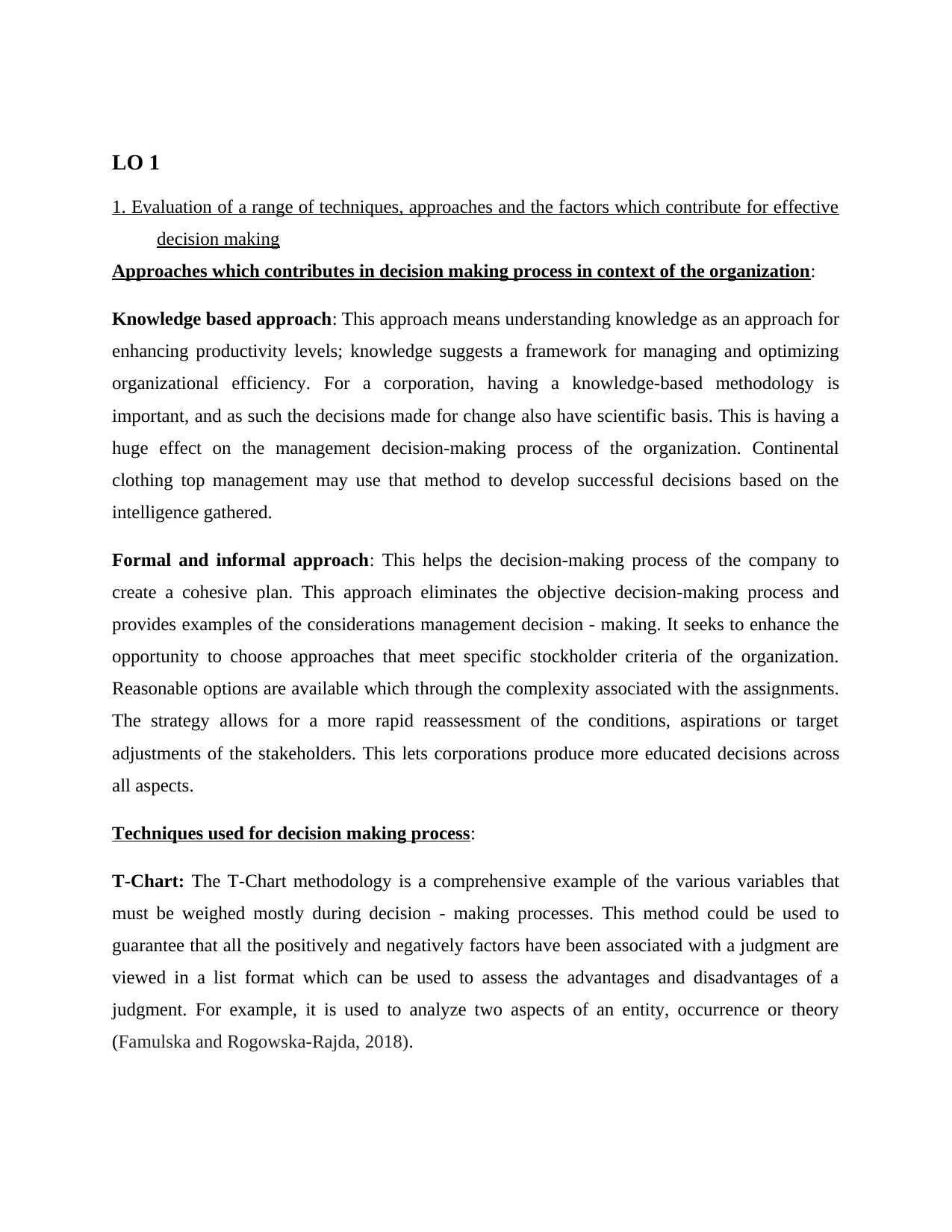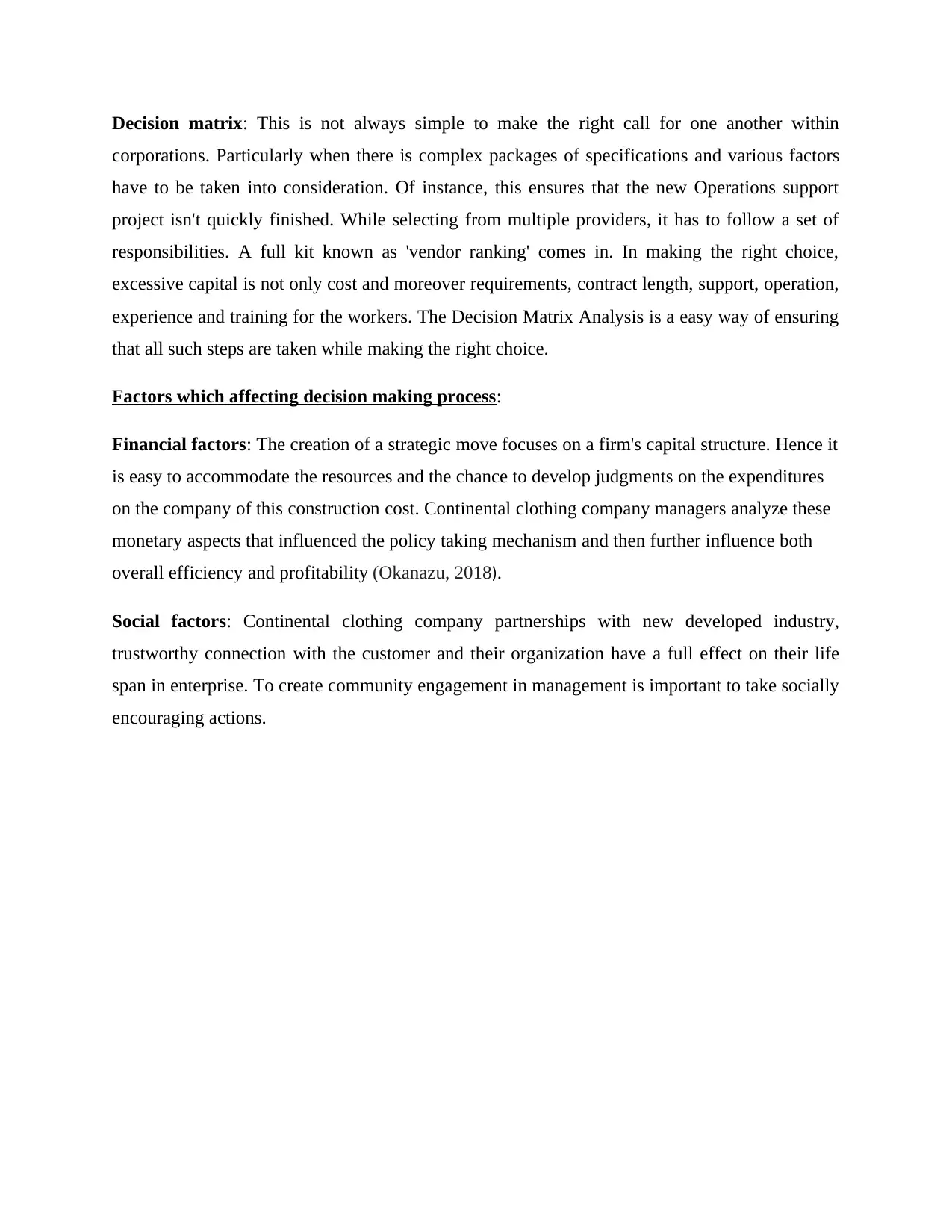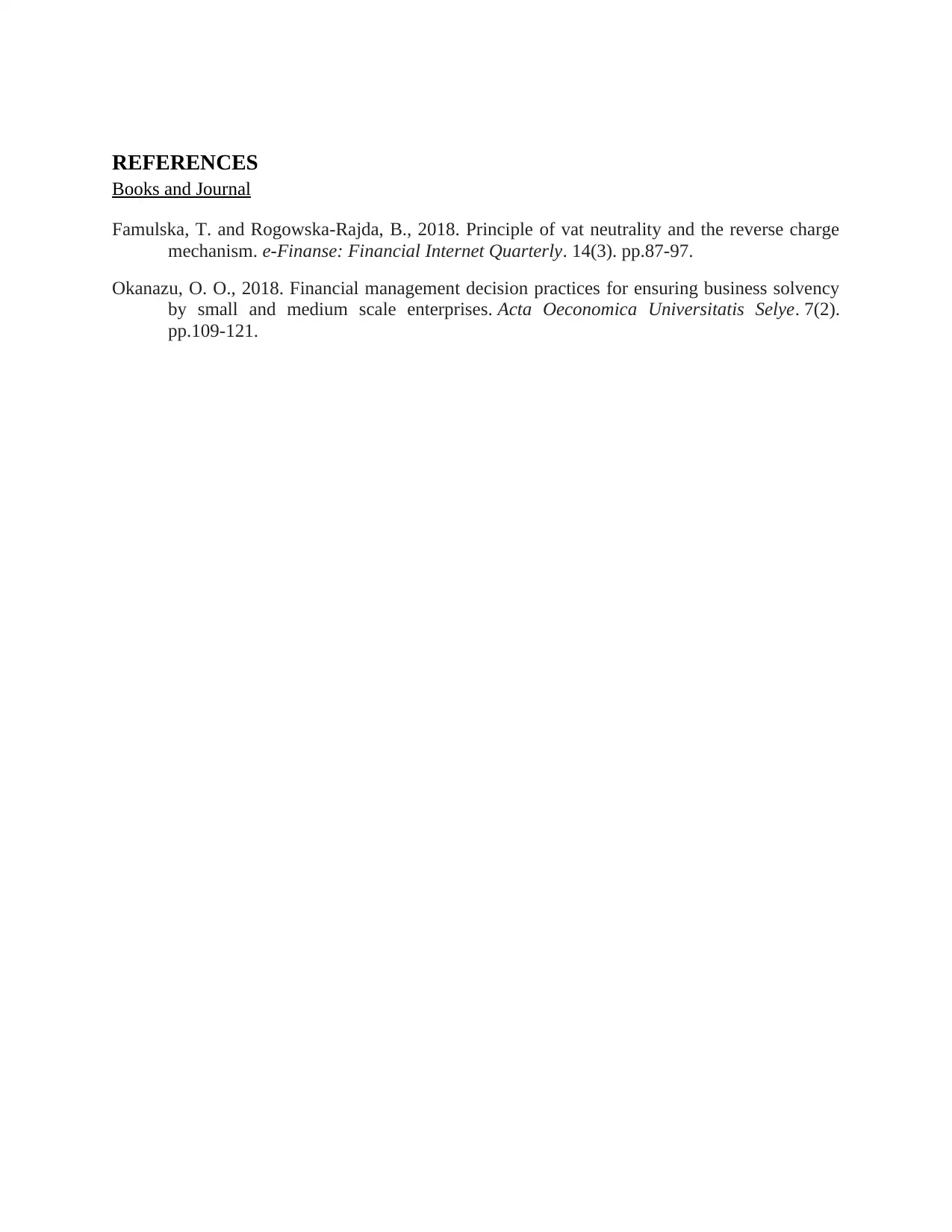Financial Management Report: Decision-Making Techniques and Factors
VerifiedAdded on 2023/01/09
|5
|670
|74
Report
AI Summary
This report delves into the realm of financial management, focusing on the evaluation of various techniques, approaches, and factors that contribute to effective decision-making. It explores two key approaches: the knowledge-based approach, which emphasizes the importance of data and understanding in enhancing productivity and optimizing organizational efficiency, and the formal and informal approach, which aims to create a cohesive decision-making plan by eliminating objective biases and considering stakeholder criteria. The report then examines specific techniques, including the T-Chart, used for weighing variables in decision-making, and the decision matrix, which aids in making complex choices by considering multiple factors and specifications. Furthermore, the report identifies crucial factors influencing the decision-making process, such as financial factors, which impact capital structure and expenditures, and social factors, which affect a company's relationships and community engagement. The report concludes with a list of references, including academic journals and books, to support the discussed concepts.
1 out of 5












![[object Object]](/_next/static/media/star-bottom.7253800d.svg)